The complete guide to home viewing
Get Screen Gab for everything about the TV shows and streaming movies everyone’s talking about.
You may occasionally receive promotional content from the Los Angeles Times.
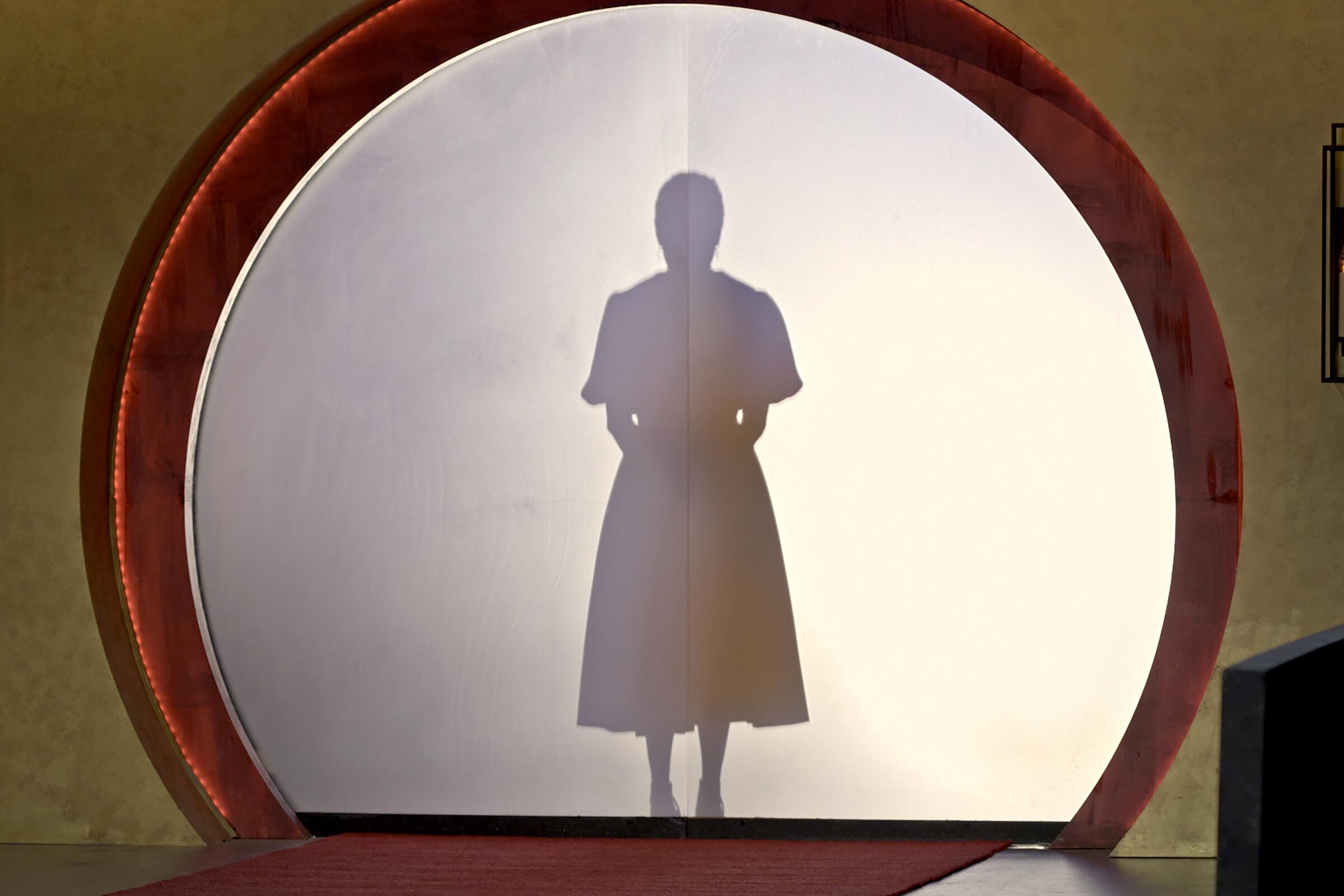
“Love Is Blind,” Netflix’s addictive dating show, is back — and early into its Season 2 premiere, it proves it knows how to stoke viewer reaction while simultaneously offering one example why an increasing number of women are choosing to be single.
In the show’s montage of pod dates, in which prospective partners get to know each other in a windowless room where they’re separated by a wall, 33-year-old veterinarian Abhishek, better known as “Shake,” says to one prospective soul mate: “I love buying clothes for girls. ... What’s your size?” With another potential match, he approaches the question in another far-from-subtle way: “If we were to be at a music festival, do you like being on a guy’s shoulders? ... Will I have trouble picking you up?”
The complete guide to home viewing
Get Screen Gab for everything about the TV shows and streaming movies everyone’s talking about.
You may occasionally receive promotional content from the Los Angeles Times.
Such moments (and to be clear, the women — ahem, Trisha — have their fair share) are all part of the ridiculously hypnotic allure of the show, which debuted in February 2020 and quickly became one of the most talked-about dating shows on social media. Its novel concept (ostensibly) tests whether lasting relationships — that could lead to marriage — can be achieved by first establishing an emotional connection free of the shallow and materialistic hurdles that have made finding a match in the dating app era a dumpster fire.
The new season features a new cast of 30 wall talkers — 15 women and 15 men — once again splitting off into pairs and getting to know each other in Netflix’s version of a blind date before the eventual matches (who meet only after they are engaged) embark on their journey to the aisle. In keeping with tradition, the 10-episode season is being released as a three-week event: The first five episodes are now available to stream; the next four episodes drop Feb. 18 before concluding with the finale on Feb. 25.
The Times spoke with creator and executive producer Chris Coelen — head of L.A.-based Kinetic Content, which is also behind Lifetime’s “Married at First Sight” — about the sensation caused by the first season, criticism of the series’ casting choices and more. The interview has been edited for length and clarity.
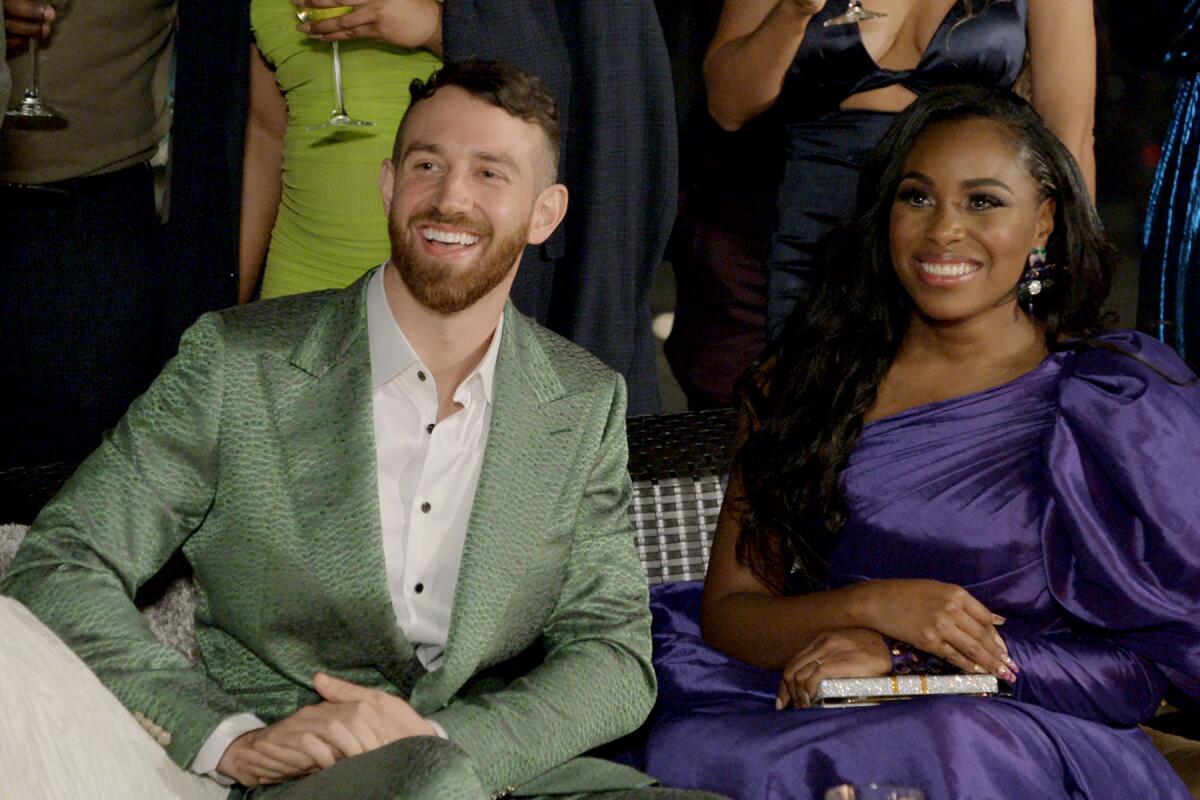
The popularity of the first season, and the two marriages that came out of it, set high expectations for participants this season. Cameron Hamilton and Lauren Speed-Hamilton quickly became the fan-favorite couple viewers rooted for. He was a mellow artificial intelligence data scientist, she a bubbly content creator — there’s was a connection that seemed pure and grounded from the start. The other couple, Matt Barnett and Amber Pike, had a more dramatic start to their union (Barnett had three women vying for his attention; later, their mismatched financial standing seemed to signal trouble), but their love persevered. Both couples recently celebrated three years of marriage.
There definitely are expectations because that’s the only season that people know. In [the forthcoming] Season 3, we had somebody going, “Oh, are we like the Jessica and Mark?” It was just for a blip. But there was this acknowledgment, like, “Oh, are we the this?” I think people are going to do that. The viewers are going to watch the show feeling like, “Oh, is this this story?” The truth is that even when you’re looking for that, or you’re expecting something, the nice thing is that the show subverts your expectations because it’s just real in terms of what this particular group of people did with this experiment and where they went with their particular stories. No two stories are exactly alike. I will be curious once you watch the finale because there are some things that I don’t think that you’ll expect that happened. And that’s exciting.
Fan-favorite couple Cameron and Lauren of Netflix’s buzzy matchmaking reality show “Love Is Blind” take us inside their “crazy adventure.”
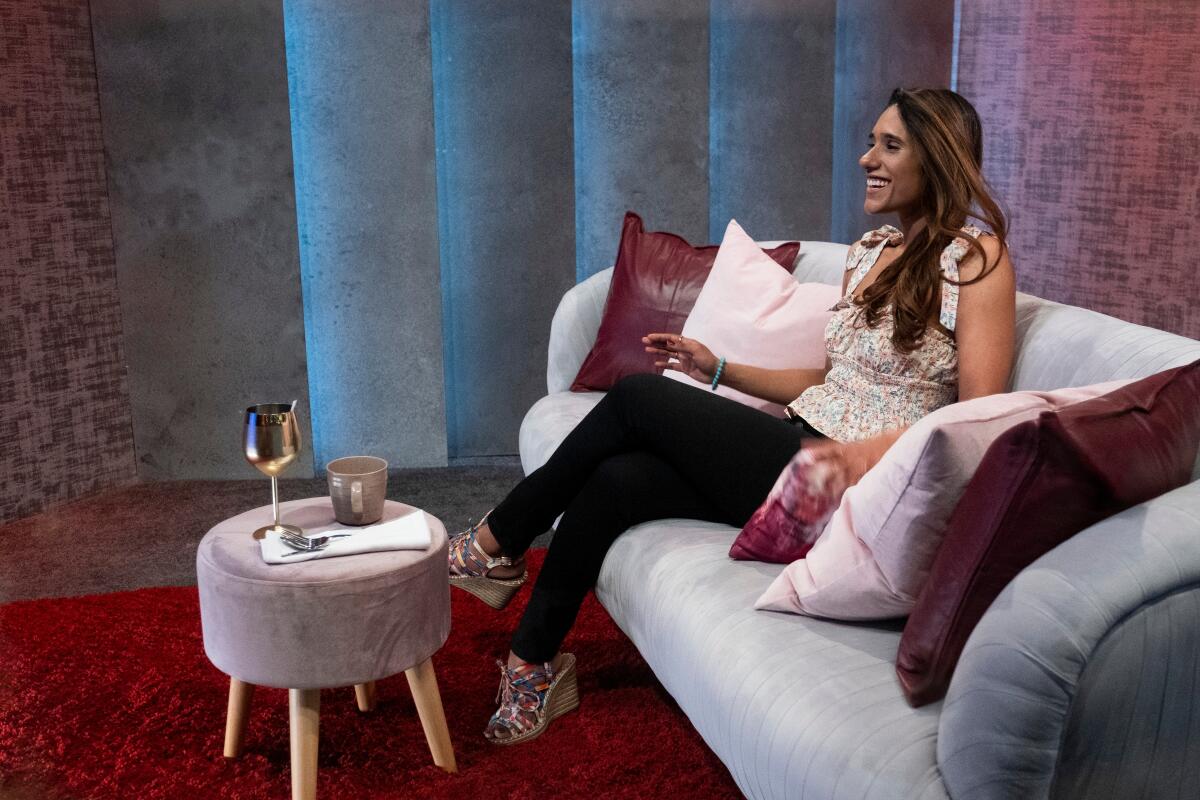
The first season provoked criticism for failing to cast a wider range of sizes, ethnicities and types of hopeful singles. If love is blind, many asked, why do the cast members with the most significant storylines fit Hollywood’s usual template for physical appearance?
Both Season 1 and Season 2, we really tried to have a diverse pool of participants in every sense of what that word means — whether it’s experience or body type or ethnicity or whatever. There’s only so many people that we showed. It’s actually kind of interesting to see who gravitates toward who, and I’ve thought about this, and I’ve talked about this in the past — there’s something that’s very interesting to me, that when you go into an environment where you do strip away all of the trappings of the material world, and you’re in there, there’s some people that just present confidently or flirtatiously or whatever. It’s certainly not like we said, “Let’s stack the deck.” No, we had every kind of person that we could find come into this environment, and everybody had an equal opportunity. We don’t steer or control any of it. We just set up the mechanism and help move them around, depending on who they want to spend time with.
They enter this show knowing, at this point, what it is. Look at Shake. He really wants to know what they look like. And he really wants to know that they’re in shape. That’s a big thing for him. And most of the other people around thought he was kind of an a—. But that’s his story. The show really specifically tries not to have a point of view. So, it’s not like the show’s point of view is “love is blind.” The show asks the question: Can it be blind? Is it blind or isn’t it? Maybe for some people it is and some people it isn’t. You see that in the Shake and Deepti story. It’s very evident that he isn’t attracted to her. He talks about that; he doesn’t have this attraction. There’s reasons we can speculate about why that might be. Again, the show isn’t taking a point of view; it is basically asking the question and letting these people kind of experience their own journey and telling their stories. I don’t think anybody was humiliated on this, but if somebody was to feel humiliated, I think we would tell that story; we’re not looking for that. That’s the thing, we’re not really looking for anything. We’re setting it up and following where it goes. If people who you might conventionally think are mismatched physically fall in love, amazing. But that’s the thing: What is your perception of what the word “mismatch” means?

The first season premiered before COVID-19 upended life as we knew it in the U.S. Netflix is notorious for withholding viewership specifics, so putting “Love Is Blind’s” popularity into perspective is inexact, but it was hard to escape the chatter it generated on social media. It was quickly renewed, but with COVID delaying many Hollywood productions, shooting didn’t begin until the end of April 2021. The show had protocols in place — there was frequent testing and COVID compliance officers on-site — but the pandemic isn’t mentioned at any point in the series.
When we were filming, we were already over a year into the pandemic. The vaccine was available; people were kind of over [the pandemic]. I think if you’re making a new show, great, lean into it. We’re not making a new show. It was an issue kind of around “Love Is Blind” and around most of the shows we do, but it wasn’t a direct impact in terms of the stories that we’re actually interested in on “Love Is Blind,” which is people finding love and choosing someone to spend the rest of your life [with]. One of the things the show explores is whether there are obstacles that get in the way of that. And for some people, that might be opinions of family or friends, or physical attributes, or whatever in the material world, or distractions ... and for other people, it might have been COVID or an illness. But it wasn’t in this particular season. So, I think if it really presented itself as something that impacted on the stories [we followed] — look, these people have jobs. We’re not filming them at work. We’re not filming them saying, “How am I going to make my rent?” unless it’s an impact on their story. It didn’t directly impact the story.
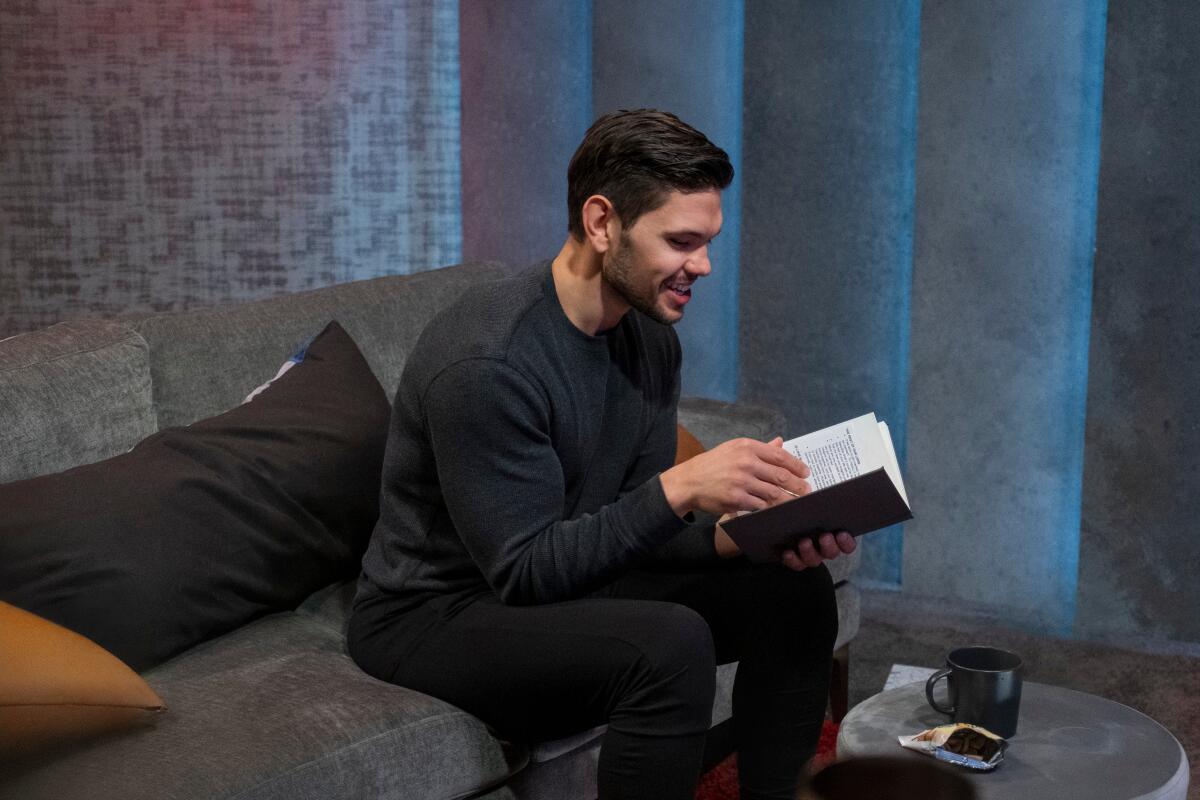
While “Love Is Blind” has managed to hit the dramatic beats typical of must-see dating shows — the emergence of couples you root for, the love triangles, the villains, the climactic proposals — it’s also brought up real-world relationship sticking points: The first season touched on financial security; this season broaches opposing views on religion. But noticeably absent from this season is talk of politics or science, a notable omission at a time when both topics have emerged as lightning rods in the social discourse and as dating deal breakers.
We probably have more footage, in a way, on this show than we do on any show I’ve ever been a part of — 30,000 hours of footage or some crazy amount. You have to pick and choose your places for the things [we do feature]. It’s not that people didn’t discuss science or politics or heritage or whatever. By the way, Shayne and Natalie, when they met her parents — I’ve seen a lot of the footage, and they talked about being in a multicultural relationship, and it’s a really fascinating conversation. There’s only so much bandwidth that the show has. They’re with each other all the time. You’re seeing 10 hours of the journey across all the couples. Obviously, [we]’re picking and choosing what we feel like, ultimately, are the most relevant storylines that, again, portray them in the most accurate way and their journey in the most accurate way. And it’s not that they don’t have other conversations. Definitely people talk about politics, and there’ll be people in the pod — sometimes people will go, “Oh, my God, don’t tell me you voted for so-and-so.” And that was like a deal breaker for them.
Matt Barnett and Amber Pike, who met on Netflix’s matchmaking reality show “Love Is Blind,” reveal how they handled his wedding-day freakout.
Just as in last season, there are two other couples who left the pods engaged but their journeys did not continue to be followed by the show’s cameras.
They don’t really feature on the show, so it’s not like people [will] go, “Oh, it’s those people.” But there was a guy named Joey and a woman named Caitlin who got engaged. Joey is on there, he’s got sort of prematurely white hair, and that he got engaged to Caitlin, who I don’t think you really ever see. And then there’s a woman, Kara, who, again, maybe she might appear in the background — she’s got this long blond hair — and this guy, Jason, who’s a tall guy with glasses. I don’t think you see — or maybe if you see him, it’s for a split second. I don’t know whether they are together or not. I know Caitlin and Joey stayed together for a while. They may still be together. I don’t know for a fact.
How do we decide [who to follow]? I don’t know. I guess I’d say, how interesting do we think they are, and what’s the mix of stories?
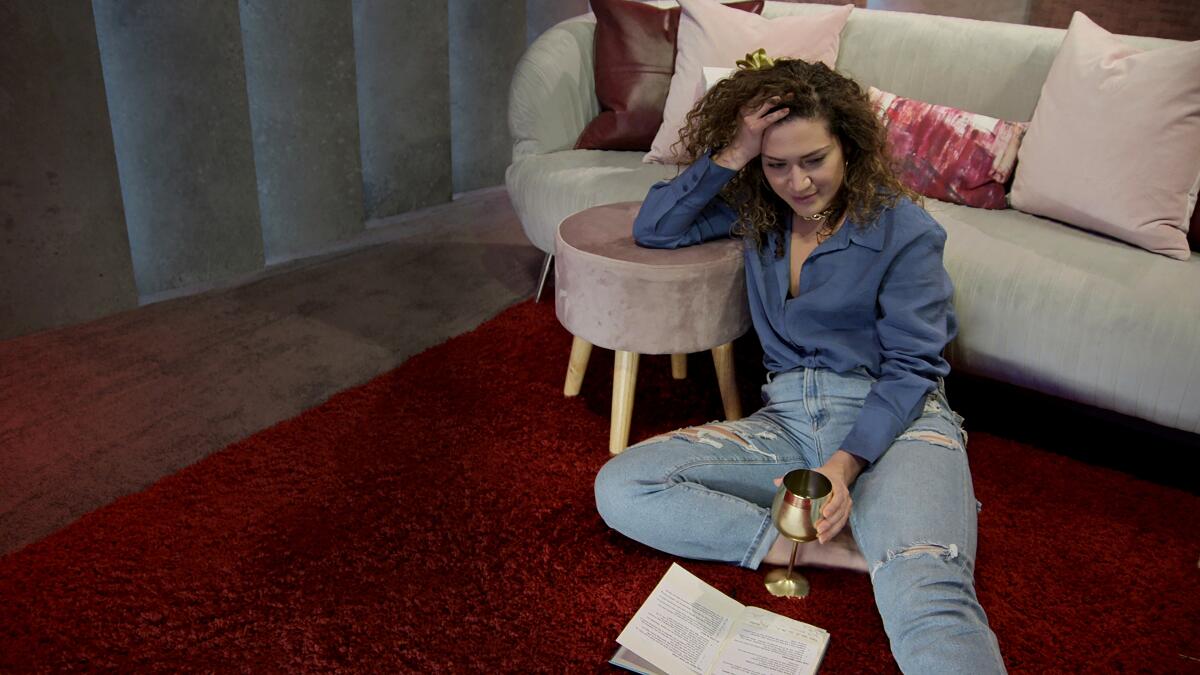
Curiosity was strong in the show’s debut season, with watchful fans dissecting Instagram posts for clues about the relationship status of certain couples following the show’s finale. Since the announcement of the Season 2 cast, there’s already been some lurking, including from the writer of this piece. (I’m impatient!) Coelen insists there is no social media mandate that prohibits participants from posting potential reveals or clues — though it is encouraged that they don’t — nor are the unlucky-in-love participants discouraged from joining dating apps in the gap between production and release.
Mandate is a strong word. Pretty much every show has spoilers at this point before [it] starts. There is no mandate. There are no requirements. But there’s a strong suggestion that we would love to have people enjoy watching them go through this experience. I know we’re in a culture where we broadcast everything to the world and do whatever; part of this experiment is about not doing that. People are going to do what they’re going to do. But I think generally people buy into the idea that this is something that they do not want to spoil for the audience.
The complete guide to home viewing
Get Screen Gab for everything about the TV shows and streaming movies everyone’s talking about.
You may occasionally receive promotional content from the Los Angeles Times.